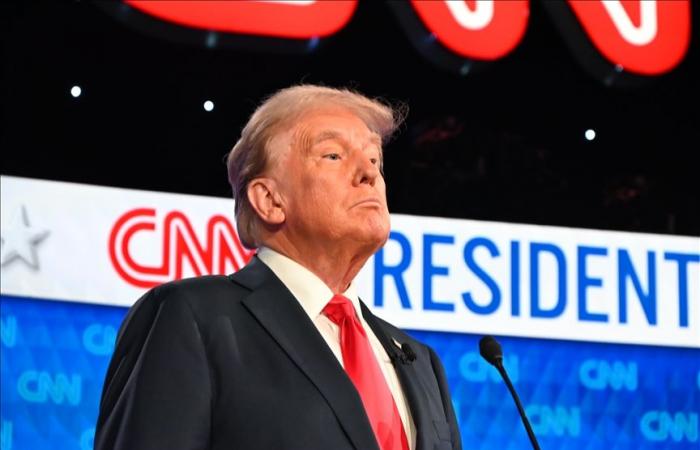AA / Washington / Iclal Turan
In a landmark decision, the U.S. Supreme Court ruled Monday that former President Donald Trump is entitled to some degree of immunity from prosecution for his official acts, but not for actions he took as a candidate.
“We conclude that under our constitutional separation of powers structure, the nature of presidential power requires that a former president enjoy some immunity from criminal prosecution for official acts performed while in office,” Chief Justice John Roberts wrote in a 6-3 decision split between the court’s conservative and liberal justices. “At least with respect to the president’s exercise of his core constitutional powers, that immunity must be absolute,” he added.
However, not everything is official, Justice Roberts clarified.
“The President has no immunity for his unofficial acts, and not everything he does is unofficial. The President is not above the law,” he wrote, adding, “But Congress cannot criminalize the President’s conduct in the exercise of the responsibilities of the executive branch under the Constitution.”
In an impassioned dissent, joined by two other Supreme Court justices, Justice Sonia Sotomayor wrote: “The Court is effectively creating a lawless zone around the president, upending the status quo that has existed since the nation’s founding.”
Listing actions that Trump or other presidents could take that might be exempt from prosecution, she wrote: “The president orders a Navy unit, Seal Team 6, to assassinate a political rival? Immunity. Arranges a military exchange for a pardon? Immunity. Immunity, immunity, immunity.”
“The relationship between the president and the people he serves has changed irrevocably,” she said.
In an online message, Donald Trump, who faces several court cases that could be affected by the decision, called it “a great victory for our Constitution and our democracy.”
In February, a federal appeals court unanimously rejected Trump’s request for presidential immunity from criminal prosecution related to his efforts to overturn his 2020 election defeat.
Following that ruling, which meant Donald Trump could be prosecuted for trying to overturn the election results, the former president asked the Supreme Court to reverse its decision.
Special counsel Jack Smith is prosecuting Donald Trump for interference in the 2020 election, while the former president’s legal team is trying to have the election interference case dismissed by invoking presidential immunity.
The decision could also affect the prosecution of Trump in Florida for taking classified documents from his administration with him as a private citizen and refusing to return them to the government.
*Translated from English by Mourad Belhaj
Only a part of the dispatches, which Anadolu Agency distributes to its subscribers via the Internal Dissemination System (HAS), is published on the AA website, in a summarized form. Please contact us to subscribe.






